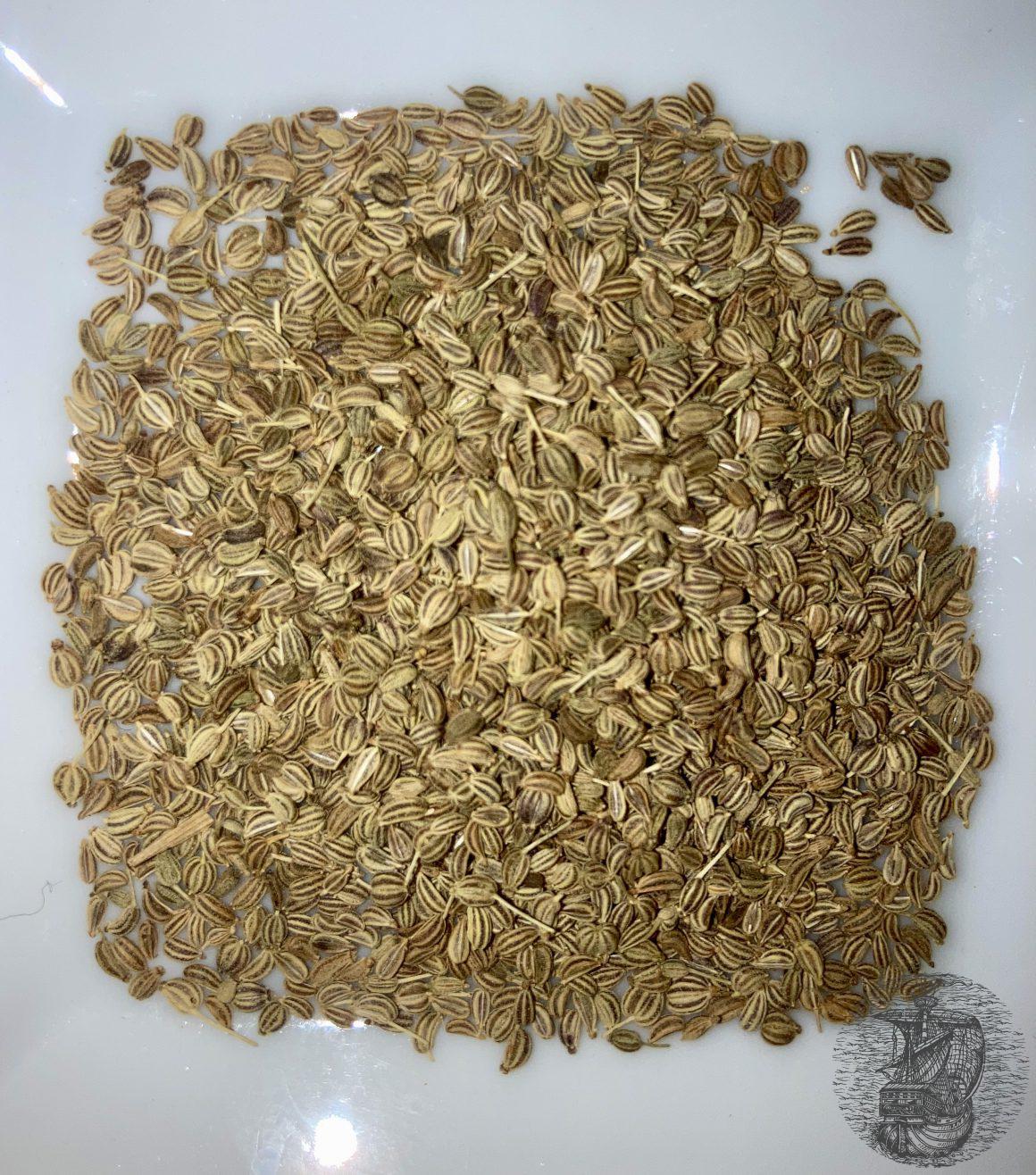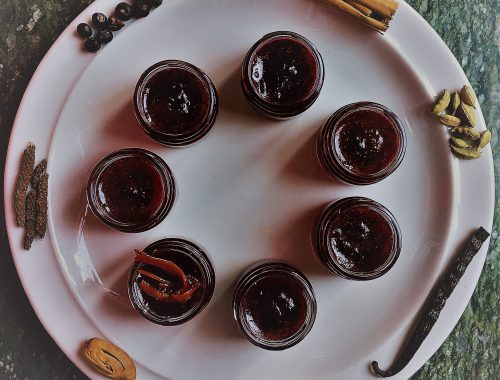
Ajwain – the king among caraway seeds
Is ajwain related to cumin and caraway?
Yes, ajwain is an annual plant and belongs to the same family as caraway and oriental cumin – namely the Umbelliferae.

Ajwain is cultivated in India, but also in Afghanistan, Pakistan, Iran, and Egypt.
It is also called king cumin, ajowan, or carom
Sometimes ajwain is confused with celery seeds or lovage seeds. Although both also belong to the same family, they are different plants and the seeds have a different taste.
Ajowan seeds, by the way, botanically speaking, are not seeds, but fruits.
Whole, uncooked ajwain has little flavor, but its taste is bitter and spicy
If you dry roast it, it loses its bitterness and develops a more intense flavor.
Crushed and cooked, on the other hand, it gives off the smell and taste of thyme, since it contains the same essential oil, thymol.
Ajwain is very intense, much more so than thyme, and should be used sparingly
You can cook the seeds whole or crush them first in a mortar. They also grind well in a pepper mill.
It goes very well with all legumes and potatoes. Just like other caraway seeds, it helps to digest the legumes better.
It also goes very well with fish and vegetables or in a scrambled egg.
In India, it is added to bread and often to curries
It is also sometimes included in other blends, such as garam masala or berberé.
Ajowan is also often a spicy ingredient in Bombay Mix – a snack mix of nuts, fried pulses (lentils/chickpeas), and baked chickpea noodles.
Besides, it is an important ingredient in Ayurvedic cuisine.
And the essential oil is used in toothpaste and in perfume.
Just add some ajwain the next time you cook lentils. For the taste and digestion ?




